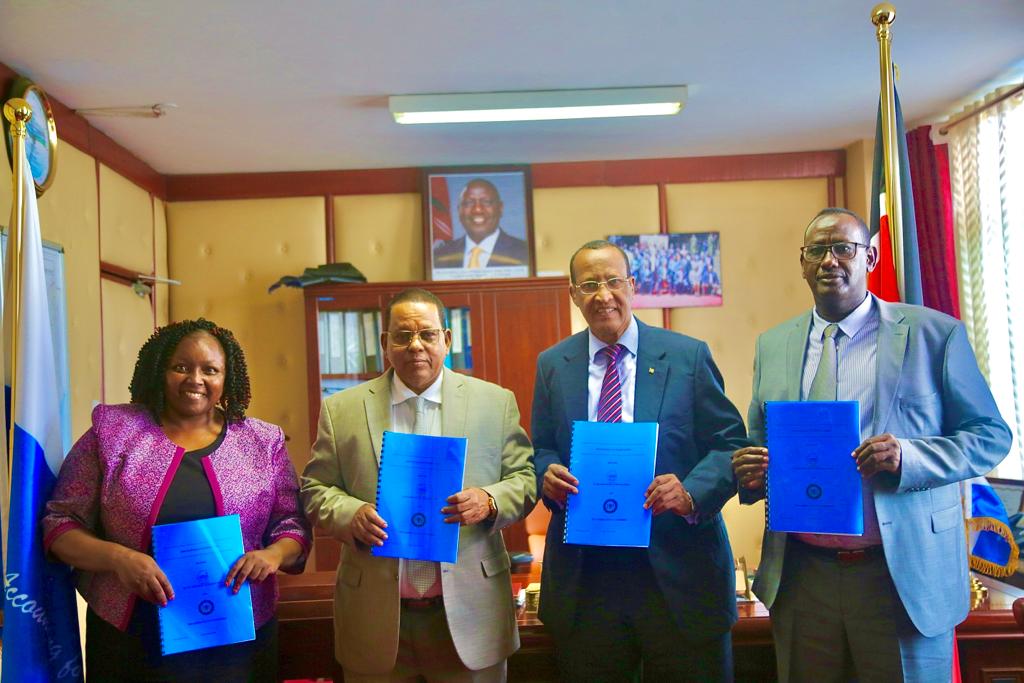The Water Resources Authority (WRA), a key player in Kenya’s water management sector, operates under the Ministry of Water, Sanitation and Irrigation. Established under Section 11 of the Water Act of 2016, WRA succeeded the Water Resources Management Authority (WRMA), taking on a broader mandate in ensuring sustainable use and management of Kenya’s water resources.
As Kenya faces growing challenges related to water scarcity, pollution, and climate change, WRA plays a critical role in ensuring that the country’s water resources are protected, regulated, and utilized effectively. Below, we highlight the core functions of WRA.
1. Formulation of Standards, Procedures, and Regulations
The WRA is tasked with developing and implementing standards, procedures, and regulations for managing Kenya’s water resources. These standards ensure the sustainable use of water while safeguarding its availability for future generations. The policies created address diverse issues such as water abstraction, water quality, water pollution control, and the conservation of catchment areas.
2. Enforcement of Regulations
Once these standards and regulations are in place, the WRA ensures compliance through regular inspection, monitoring, and enforcement. This oversight helps prevent the illegal abstraction of water, overuse of resources, and environmental degradation. Non-compliance can result in fines, penalties, or legal actions against violators.
3. Issuance of Water Permits
One of WRA’s key functions is managing the issuance of water permits. These permits are necessary for activities such as water abstraction, use, and recharge. After receiving permit applications, WRA evaluates them to ensure that the proposed water use will not harm the resource or other users. It also monitors adherence to the terms and conditions of these permits.
4. Determining and Setting Water Permit Fees
WRA is responsible for determining and setting the fees associated with water permits and usage. These fees are important in regulating access to water resources while ensuring that funds are available to maintain and protect the infrastructure and environment associated with water systems.
5. Collection of Water Permit Fees and Usage Charges
The Authority collects water permit fees and water usage charges. These revenues are reinvested in water resource management, research, and infrastructure development, ensuring sustainable water management for the long term.
6. Water Use Allocation
WRA is in charge of regulating water use allocation across Kenya. This process ensures that water resources are distributed equitably to meet the demands of agriculture, domestic use, industry, and environmental conservation. By managing water allocation, WRA helps mitigate conflicts over water use, especially in water-scarce regions.
7. Coordination with Other Bodies
Water resource management in Kenya involves multiple stakeholders, including local communities, international partners, and regional bodies. WRA collaborates with other organizations to improve water management and regulation. This coordination allows for a more comprehensive and integrated approach to water resource management.
8. Water Quality Testing and Control
WRA operates laboratories that conduct a variety of tests to ensure water quality across different uses—whether for domestic consumption, irrigation, construction, research, or wastewater management. The Authority ensures that water used for these purposes adheres to prescribed national and international guidelines. This is especially important in safeguarding public health and supporting industries that rely on high-quality water.
9. Pollution Control and Water Quality Improvement
Controlling pollution and improving water quality in Kenya’s rivers, lakes, and groundwater is a top priority for WRA. The Authority integrates land-use activities into its water quality control programs, ensuring that land development does not harm water resources. Efforts to reduce pollution include collaborating with other government bodies and organizations, promoting public awareness, and enforcing water quality regulations.
10. Surface Water Assessment and Monitoring
WRA is responsible for conducting surface water assessments to monitor the levels, flow, and quality of rivers, lakes, and other water bodies. This assessment helps the Authority anticipate shortages, track water pollution, and prepare for extreme weather conditions such as floods and droughts. The data collected informs national water management strategies and policies.
Importance of WRA in Kenya’s Development
As Kenya continues to industrialize and its population grows, the role of WRA becomes increasingly important. Effective water resource management is crucial not only for meeting domestic and industrial demands but also for ensuring food security through irrigation, supporting energy production, and preserving biodiversity. WRA’s work is central to achieving Sustainable Development Goal 6, which calls for the availability and sustainable management of water and sanitation for all.
Water Resources Authority Contacts
For inquiries or to apply for permits, you can contact the Water Resources Authority using the following information:
- Head Office: NHIF Building, 9th Floor Wing B, Ragati Road, Off Ngong Road.
- Phone: 0700 056 472, 020 2732291
- Email: info@wra.go.ke
The Water Resources Authority plays an essential role in managing Kenya’s water resources, ensuring sustainable use, protecting water quality, and regulating access through permits. With climate change and growing demand for water, WRA’s work is more crucial than ever in supporting Kenya’s development and safeguarding its natural resources for future generations.





